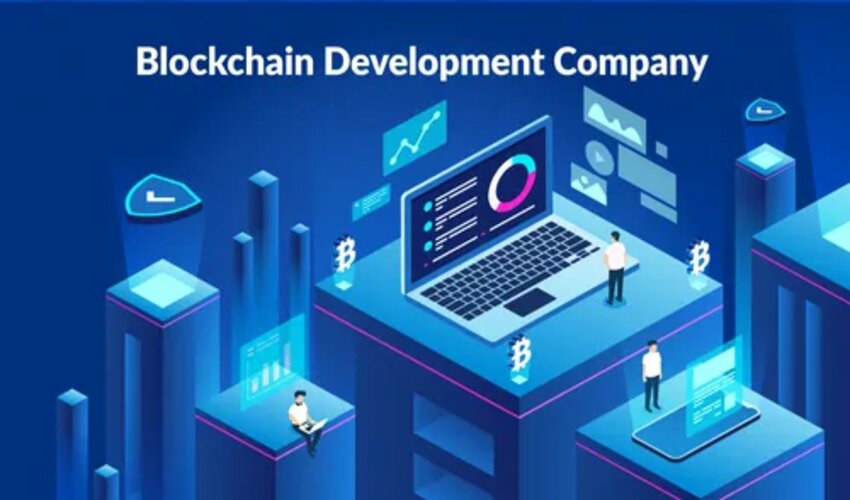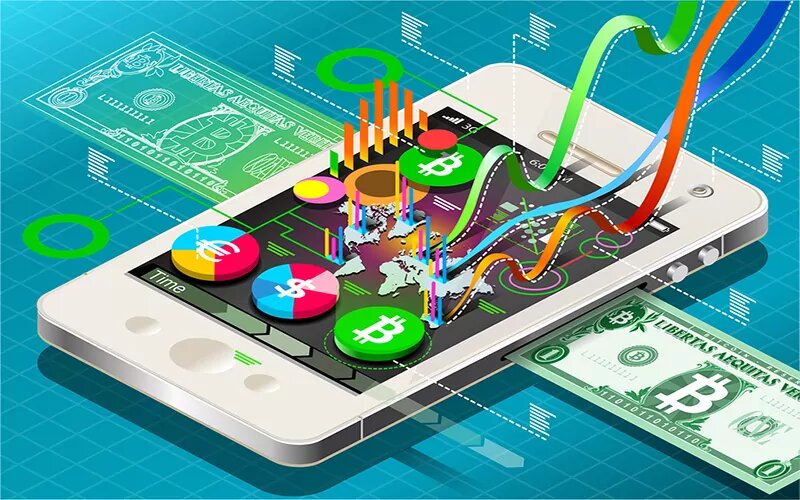Blockchain technology has gained significant attention in recent years, revolutionizing various industries, and gaming is no exception. With its decentralized nature and secure infrastructure, blockchain has the potential to reshape the gaming landscape by introducing new possibilities for ownership, security, and in-game economies. In this article, we will explore the benefits, use cases, challenges, and best practices for implementing blockchain in gaming.
In the gaming world, blockchain refers to a distributed ledger technology that allows for the secure and transparent recording of transactions and ownership. Unlike traditional gaming systems where centralized entities have control over in-game assets, blockchain technology enables players to have true ownership and control over their digital items.
Blockchain has gained popularity in gaming due to its unique features that address longstanding issues in the industry. By leveraging blockchain, our game developers can provide players with increased security, transparent transactions, and opportunities for creating digital scarcity. Join our blockchain game development company today to experience the future of gaming!
Benefits of Implementing Blockchain in Gaming
Security and Transparency
One of the key benefits of implementing blockchain in gaming is enhanced security and transparency. Traditional gaming systems often suffer from vulnerabilities, such as hacks and fraudulent activities. However, with blockchain, transactions are securely recorded on the decentralized ledger, making it difficult for malicious actors to manipulate or tamper with the data. Additionally, the transparency of the blockchain allows players to verify the authenticity and scarcity of in-game assets.
Ownership and Asset Management
Blockchain technology enables players to have true ownership and control over their in-game assets. By utilizing non-fungible tokens (NFTs), unique digital items can be tokenized and traded on the blockchain. This gives players the ability to transfer, sell, or trade their virtual assets outside of the game’s ecosystem, providing a new level of value and liquidity to their investments.
In-game Economies and Digital Scarcity
Implementing blockchain in gaming introduces the concept of decentralized in-game economies. By tokenizing in-game assets and creating scarcity through blockchain-based mechanisms, developers can establish vibrant digital economies where players can earn, trade, and sell virtual items. This opens up new opportunities for players to monetize their skills and investments within the gaming ecosystem.
Use Cases of Blockchain in Gaming
Non-fungible Tokens (NFTs) and Digital Collectibles
One prominent use case of blockchain in gaming is the creation and trading of non-fungible tokens (NFTs). NFTs represent unique digital assets, such as virtual characters, skins, or items, that can be bought, sold, and collected on the blockchain. This introduces a new paradigm of ownership and value, as players can truly own rare and valuable digital items with provable scarcity.
Decentralized Virtual Worlds
Blockchain technology enables the creation of decentralized virtual worlds, where players can interact, build, and trade in a trustless environment. These virtual worlds are governed by smart contracts, which automatically execute predefined rules and conditions. By removing the need for central authorities, blockchain-based virtual worlds offer increased autonomy and player-driven experiences.
Secure Peer-to-Peer Transactions
Blockchain facilitates secure peer-to-peer transactions within gaming ecosystems. Through the use of smart contracts, players can engage in trustless transactions, such as peer-to-peer item exchanges or in-game currency transfers. This eliminates the need for intermediaries, reduces transaction costs, and provides a seamless experience for players.
Challenges and Limitations of Blockchain in Gaming
While blockchain brings exciting possibilities to the gaming industry, it also faces certain challenges and limitations that need to be addressed for widespread adoption.
Scalability Issues
Scalability is a significant concern when implementing blockchain in gaming. Existing blockchain platforms often struggle with processing a large number of transactions, resulting in slower transaction times and higher fees. However, ongoing research and the emergence of layer 2 scaling solutions aim to alleviate these scalability issues and improve the user experience.
User Experience and Adoption Barriers
For blockchain gaming to gain mainstream adoption, user experience is crucial. The technology should be user-friendly, intuitive, and seamlessly integrated into existing gaming platforms. Simplifying the onboarding process, reducing transaction complexities, and enhancing the overall user interface are essential to ensure a smooth transition for both casual and hardcore gamers.
Regulatory Concerns
The integration of blockchain in gaming also raises regulatory concerns. As the technology enables the creation and trade of virtual assets with real-world value, legal frameworks surrounding cryptocurrencies, virtual property rights, and taxation need to be adequately addressed. Collaborations between the gaming industry and regulatory bodies are necessary to establish clear guidelines and foster a secure environment for players.
Implementing Blockchain in Gaming: Best Practices
To successfully implement blockchain in gaming, developers should consider the following best practices:
Choosing the Right Blockchain Platform
Selecting the appropriate blockchain platform is crucial for the success of a blockchain-based game. Factors to consider include scalability, security, development tools, community support, and interoperability. Ethereum, Binance Smart Chain, and Flow are among the popular blockchain platforms currently used in gaming.
Smart Contracts and Programmability
Smart contracts play a vital role in implementing blockchain in gaming. They enable the creation of in-game rules, transactions, and the management of digital assets. Developers should design robust and secure smart contracts that govern various aspects of gameplay, asset ownership, and in-game economies.
Community Engagement and Incentivization
Building an active and engaged community is essential for the success of a blockchain game. Developers can implement mechanisms that incentivize players to participate, such as rewarding them with unique in-game items or tokens. Emphasizing community feedback, transparency, and continuous updates can help create a thriving ecosystem around the game.
Case Studies: Successful Implementations of Blockchain in Gaming
Several blockchain games have achieved significant success by implementing blockchain technology. Here are a few notable case studies:
Axie Infinity
Axie Infinity is a blockchain-based game that combines elements of trading card games and virtual pet breeding. Players can collect, breed, and battle virtual creatures called Axies, which are NFTs stored on the Ethereum blockchain. Axie Infinity has gained widespread popularity, with players earning real-world income by participating in the game’s economy.
CryptoKitties
CryptoKitties is a game where players can collect, breed, and trade virtual cats on the blockchain. Each CryptoKitty is an NFT that possesses unique traits and can be bought and sold using cryptocurrency. The game gained significant attention in 2017 and highlighted the potential for blockchain-based collectible games.
The Sandbox
The Sandbox is a decentralized virtual world where players can create, own, and monetize their voxel-based gaming experiences. Powered by blockchain technology, players can build and trade virtual assets, including games, characters, and virtual real estate. The Sandbox has attracted a vibrant community of creators and players, showcasing the potential for player-driven economies.
Future Outlook and Potential Impact of Blockchain in Gaming
The integration of blockchain in gaming has a promising future, with the potential to transform the industry in several ways.
Integration with Augmented Reality and Virtual Reality
The combination of blockchain technology with augmented reality (AR) and virtual reality (VR) has the potential to revolutionize immersive gaming experiences. By leveraging blockchain’s decentralized infrastructure, players can engage in AR/VR environments, own and trade virtual assets, and participate in shared virtual experiences.
Empowering Players with True Ownership
Blockchain empowers players with true ownership of their in-game assets. This shift towards player-centric ownership can lead to more player-driven economies, where players have the ability to monetize their skills and investments within the gaming ecosystem. This paradigm shift challenges traditional gaming models and opens up new avenues for player empowerment.
Disrupting Traditional Gaming Models
Blockchain-based games have the potential to disrupt traditional gaming models by eliminating intermediaries and enabling direct peer-to-peer interactions. This can result in reduced transaction costs, increased player autonomy, and the democratization of game development. The rise of play-to-earn models, where players can earn real-world income through gameplay, represents a significant shift in the way we perceive and participate in gaming.
Conclusion
The implementation of blockchain in gaming presents exciting opportunities to enhance security, ownership, and in-game economies. By leveraging blockchain’s decentralized nature, developers can create immersive gaming experiences where players have true ownership of their digital assets. While challenges and limitations exist, ongoing developments in scalability, user experience, and regulatory frameworks aim to address these concerns. As blockchain continues to evolve, the gaming industry stands to benefit from its transformative potential.
FAQs
1. Can blockchain be used in any type of game?
Blockchain technology can be implemented in various types of games, ranging from collectible card games to virtual worlds and multiplayer online games. The suitability of blockchain depends on the game’s mechanics, economy, and the desired level of player ownership and interaction.
2. Are blockchain games only for cryptocurrency enthusiasts?
While some blockchain games utilize cryptocurrencies as in-game currencies or rewards, not all blockchain games require extensive knowledge or involvement with cryptocurrencies. Many blockchain games provide seamless user experiences and allow players to interact with blockchain technology without the need for deep understanding of the underlying technology.
3. How do blockchain games ensure fairness and prevent cheating?
Blockchain games leverage the transparency and immutability of the blockchain to ensure fairness and prevent cheating. Game actions and transactions are recorded on the blockchain, making it difficult to manipulate or cheat the system. Smart contracts enforce predefined rules and conditions, providing a trustless and tamper-resistant gaming environment.
4. Can I sell my in-game assets from a blockchain game?
Yes, one of the significant advantages of blockchain games is the ability to sell or trade your in-game assets. Since these assets are represented as NFTs on the blockchain, you have true ownership and can freely transfer or sell them on blockchain marketplaces.

















Leave a Reply